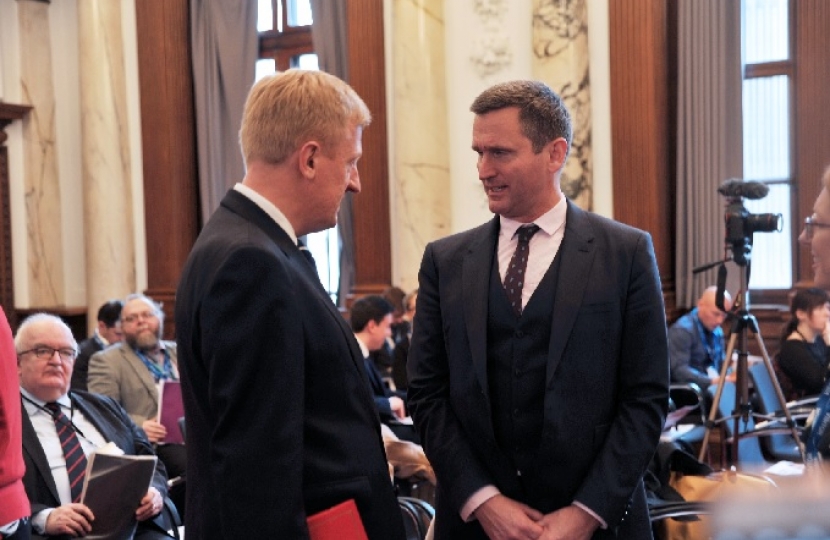
Lord Holmes Review: Opening up Public Appointments to Disabled People
Currently just 3% of public appointees declare a disability. An absolutely shocking figure. Just 180 people out of the 6000 appointments made last year to 500 bodies responsible for £200 billion of public funds across, but not limited to, healthcare, education, the criminal justice system, energy, security and defence. These are significant positions that have an impact on all our lives.
When the Minister for Implementation, Oliver Dowden, invited me to conduct the review he made the point that it is essential that public appointees are truly representative of the society they serve. I completely agree but I believe it is essentially about enabling talent. The core principle underpinning the review is talent; talent in its broadest most brilliant form, not just that of a tiny elite. Talent that is currently sadly wasted.
I agreed to lead this independent review to uncover the reasons for this shocking – 3%- statistic. To discover and fully expose the barriers, blockers and bias but, most importantly, to set out ambitious but achievable recommendations to make long-overdue change. A key recommendation is that the Government set a target of 11.3%. Other recommendations focus on data collection and transparency and a more innovative and flexible approach at all stages of the recruitment process.
Opening up public appointments to disabled talent is not looking to give anyone an unfair advantage. An equitable, inclusive, fully accessible and positive process puts everyone on the same start line. It allows everyone to run whatever race they choose with fairness, dignity and respect throughout. A guaranteed interview is not a leg up, it's a tool to allow someone with valuable lived experience to get in front of an interview panel. Offering alternative ways to apply is not giving a neuro-diverse person an edge, it may well be the difference which means someone would apply at all.
The review benefitted greatly from the contributions of the nearly two hundred members of the public who responded to our call for evidence as well as Disabled Peoples Organisations, Civil Servants and Public Appointees. Individual stories and experiences are the most powerful case for change as well as understanding the status quo. As one respondent said, “access is not just physical, it’s emotional and attitudinal.”
The recommendations are focussed on increasing the number of disabled applicants, interviewees and appointees. However, I believe that they could have general applicability and benefits in many situations, across public appointments and to all talent acquisition and recruitment practices.
Positive change requires leadership, culture and innovation and I am convinced that substantial, sustainable change is possible. It will not be easy, but it is achievable. Currently, talent is everywhere, but opportunity is not. I hope this review and its recommendations will play some part in addressing this avoidable failing.
Let’s turn this public Dis-appointment into an opportunity to show that we are a country that enables and empowers all our talent, not least, that held by disabled people across the nation.
About Lord Holmes: Chris is an active Conservative member of the Lords with a focus on Diversity and Inclusion and the opportunities presented by the 4th Industrial Revolution. He is also Deputy Chairman of Channel 4. Prior to entering the Lords, Chris was Director of Paralympic Integration at the London 2012 Organizing Committee of the Olympic and Paralympic Games (LOCOG) and is himself a former Paralympic swimmer who won nine gold, five silvers and one bronze medal across four Games, including a record haul of six golds at Barcelona 1992.
Please note 'Guest Bloggers' to the CDG website do not necessarily reflect the views of the organisation - or vice versa - but are invited to do so to encourage debate and act as a constructive forum to promote issues relevant to disabled people and the disability community and their supporters.
'Guest Bloggers' are also not required to be members of the Conservative Party.

